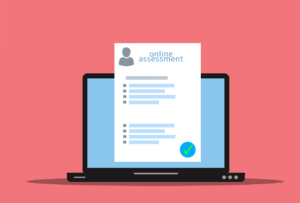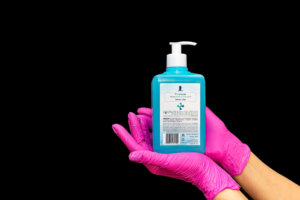Are you a registered nurse who has successfully passed the NCLEX RN Exam? Congratulations! You’ve achieved a significant milestone in your career. However, passing the exam is only the first step towards ensuring your professional success. Maintaining the validity of your certification is equally crucial for your career growth and advancement.
In this article, we’ll discuss the validity of the NCLEX RN Exam and how you can ensure the longevity of your certification. We’ll explore the importance of continuous learning and staying up-to-date with the latest advancements in your field. Additionally, we’ll address the challenges that come with maintaining certification validity and provide strategies to overcome them.
So, let’s dive in and learn how you can safeguard your nursing career.
Key Takeaways
- Passing the NCLEX RN Exam is the first step towards professional success and assesses competency and knowledge in nursing.
- Maintaining certification is crucial for career growth and advancement, and letting the nursing license expire can lead to serious consequences.
- Continuous learning through professional development opportunities and seeking advanced education and training is crucial to maintain certification and provide the best possible care to patients.
- Balancing work and education through effective time management, seeking support, and budgeting strategies can ensure certification validity.
Understanding the NCLEX RN Exam
So, you’re wondering what exactly the NCLEX RN exam entails and how it’s structured? Well, let me tell you, it’s a comprehensive and challenging test that you’ll need to pass in order to become a registered nurse.
The NCLEX RN exam format consists of computerized adaptive testing (CAT), which means that the questions you receive will be based on your performance on previous questions. This format allows the exam to accurately assess your level of competency and knowledge in nursing.
The exam content is divided into four major categories: Safe and Effective Care Environment, Health Promotion and Maintenance, Psychosocial Integrity, and Physiological Integrity. These categories cover a wide range of topics, including nursing ethics, patient care, pharmacology, and basic nursing concepts.
The exam consists of multiple-choice questions, with some questions requiring you to select multiple correct answers or to fill in the blank. It’s important to study and prepare for the exam thoroughly, as passing it is critical to your career as a registered nurse.
Maintaining the Validity of Your Certification
If you want to maintain the validity of your NCLEX RN certification, you need to know about the continuing education requirements, renewal process, and deadlines.
It’s important to keep your knowledge and skills up to date. You can do this by taking courses, attending conferences, or participating in other educational activities.
If you let your certification expire, you may face consequences such as being unable to work in certain settings or having to retake the NCLEX RN exam.
Continuing Education Requirements
Meeting continuing education requirements is essential to maintaining the validity of your NCLEX RN certification and staying up-to-date with the latest developments in the nursing profession. As a registered nurse, it is your responsibility to continuously expand your knowledge and skills to provide the best care for your patients. Fortunately, there are many online resources and professional development opportunities available to help you meet your continuing education requirements.
To maintain your NCLEX RN certification, you must complete a certain number of continuing education hours within a specified time frame. The requirements vary by state, so it is important to check with your state’s board of nursing to ensure you are meeting the necessary requirements. There are many online resources available, such as webinars, online courses, and podcasts, that can help you fulfill your continuing education requirements. Additionally, attending conferences and workshops can provide valuable networking opportunities and hands-on learning experiences to enhance your skills and knowledge. By staying up-to-date with the latest developments in the nursing profession, you can ensure the longevity of your certification and provide the best care for your patients.
| Continuing Education Resources | Description |
|---|---|
| American Nurses Association | Offers webinars, conferences, and online courses for professional development |
| Nurse.com | Provides a variety of continuing education courses online |
| National Council of State Boards of Nursing | Offers various resources for continuing education, including online courses and conferences |
Utilizing these resources can not only help you meet your continuing education requirements but also enhance your skills and knowledge in the nursing profession. By investing in your professional development, you can continue to provide quality care for your patients and ensure the longevity of your NCLEX RN certification.
Renewal Process and Deadlines
To renew your nursing license, you’ll need to keep track of the deadline and complete the necessary steps in a timely manner.
The renewal process typically involves submitting an application, completing continuing education requirements, and paying a renewal fee.
It’s important to stay aware of your renewal deadline and make sure you complete everything before it’s too late.
Renewal reminders are often sent out by the state board of nursing, but it’s ultimately your responsibility to keep track of your own renewal date.
If you miss the deadline, you may be subject to late fees or even lose your license if you don’t renew within a certain time frame.
So, make sure to keep your contact information up to date with the board and set reminders for yourself to ensure you don’t miss the deadline.
Consequences of Letting Certification Expire
Letting your nursing license expire can lead to serious consequences. You may be unable to work as a nurse and it could potentially harm your career. If you don’t renew your certification on time, you’ll have to go through the entire process of reapplying and retaking the NCLEX RN exam. This can be a time-consuming and expensive process which can also affect your job opportunities.
Many employers require that nurses maintain an active nursing license. Letting it expire could mean losing out on job opportunities or even losing your current job. In addition to affecting your job prospects, letting your certification expire can also harm your reputation as a nurse. Employers may view you as unreliable and uncommitted to your profession if you let your license lapse. This can make it difficult to find work in the future, even if you do eventually renew your certification.
It’s important to remember that maintaining an active nursing license is not only necessary for your career, but also for the safety of your patients. Don’t let your certification expire and risk losing your job and harming your career.
Importance of Continuous Learning
Keeping up with the latest advancements in healthcare is crucial for RNs to maintain their certification, as continuous learning ensures they’re providing the best possible care to their patients. By continuously educating oneself in the field of nursing, RNs can improve their skills and knowledge, making them more effective in their roles.
Moreover, lifelong learning offers a plethora of benefits, including enhanced critical thinking, better communication skills, and greater adaptability to changes in the healthcare industry. To support continuous learning, there are numerous professional development opportunities available for RNs.
Attending conferences, workshops, and seminars can help broaden one’s perspective in the field of nursing, while also providing networking opportunities. Furthermore, RNs can take advantage of online resources, such as webinars and e-learning modules, to gain knowledge on specific topics.
Additionally, many healthcare organizations offer tuition reimbursement programs, allowing RNs to pursue advanced degrees or certifications. By taking advantage of these opportunities, RNs can stay up-to-date with the latest advancements in healthcare and ensure the longevity of their certification.
Strategies for Remaining Up-to-Date
Staying current in the field of nursing requires a proactive approach and a willingness to explore new strategies for remaining up-to-date. One way to achieve this is by utilizing online resources. There are numerous websites, blogs, and forums that offer valuable information and discussions on current trends and best practices in nursing. These resources can help you stay informed on the latest clinical advances, new research findings, and emerging technologies in healthcare.
By regularly accessing these online resources, you can enhance your knowledge base and improve your skills, which can ultimately lead to better patient outcomes.
In addition to online resources, there are also professional development opportunities that can help you stay current in your practice. Attend conferences, workshops, and seminars that cover topics relevant to your area of nursing. These events provide opportunities to network with other nurses, exchange ideas, and learn from experts in the field.
You can also seek advanced education and training, such as earning additional certifications or pursuing higher degrees. By investing in your professional development, you can ensure that you have the knowledge and skills needed to provide the highest quality of care to your patients.
Challenges to Maintaining Certification Validity
Maintaining the validity of your certification can pose a challenge, especially when faced with balancing work and education. Financial constraints may also limit your ability to invest in continuing education or attend conferences.
Effective time management becomes crucial in juggling these demands while ensuring you meet the necessary requirements for certification renewal.
Balancing Work and Education
You’ve got to find a way to balance work and education if you want your NCLEX RN certification to remain valid for years to come. It can be challenging to juggle both, but it’s necessary to keep up with the ever-changing healthcare landscape.
Here are some tips to help you balance work and education:
-
Prioritize your time: Make a schedule and stick to it. Determine which tasks are most important and allocate your time accordingly.
-
Seek support: Talk to your employer about flexible scheduling or tuition reimbursement. Reach out to family and friends for emotional support and encouragement.
-
Take breaks: Don’t forget to take breaks and give yourself time to recharge. Burnout is a real issue, and taking care of yourself is essential.
-
Stay organized: Keep track of deadlines and assignments. Utilize tools like calendars and to-do lists to help you stay on top of things.
Balancing work and education is a challenge, but it’s crucial for the longevity of your NCLEX RN certification. Following these time management tips and seeking support can help you find the balance you need to succeed.
Remember to take care of yourself and stay organized to avoid burnout and ensure your certification remains valid.
Financial Constraints
If you’re facing financial constraints, it can be difficult to figure out how to pay for the education necessary to advance your nursing career. However, there are budgeting strategies you can implement to make it work. Start by creating a detailed budget that includes all of your income and expenses. Look for areas where you can cut back, such as dining out or entertainment. Consider taking on a part-time job or side hustle to supplement your income.
Additionally, don’t be afraid to seek financial assistance. Many nursing programs offer scholarships, grants, and other forms of aid. You can also look into student loans, but make sure you fully understand the terms and interest rates before making any decisions. Remember, investing in your education now can lead to a higher income and better job prospects in the future. The table below outlines some common expenses and potential ways to cut costs.
| Expense | Potential Cutbacks |
|---|---|
| Rent/mortgage | Downsize or get a roommate |
| Transportation | Carpool or use public transportation |
| Groceries | Buy in bulk or use coupons |
By being mindful of your spending and seeking financial assistance when needed, you can overcome financial constraints and achieve your nursing career goals.
Time Management
Balancing your nursing career and personal life can be challenging, but effective time management is essential to achieving a successful balance. As a nurse, your daily routine can be unpredictable and demanding. However, with effective planning and prioritization, you can create a schedule that works for you and allows you to accomplish your goals. Avoiding procrastination and distractions is also crucial to managing your time effectively.
Here are some tips to help you manage your time and avoid procrastination and distractions:
-
Create a to-do list: Writing down your tasks can help you prioritize your workload and stay organized.
-
Set realistic goals: Be realistic about how much you can accomplish in a day. Don’t overload yourself with tasks that you can’t complete.
-
Use time management tools: There are various apps and tools available, such as calendars, reminders, and timers, that can help you manage your time more efficiently.
-
Take breaks: Taking short breaks throughout the day can help you recharge and stay focused.
-
Avoid multitasking: Trying to do too many things at once can lead to mistakes and decrease productivity. Focus on one task at a time.
Frequently Asked Questions
What is the passing score for the NCLEX RN exam?
To pass the NCLEX RN Exam, you must score at or above the minimum passing standard, which is determined by the National Council of State Boards of Nursing (NCSBN). The passing score for the NCLEX RN Exam is not a fixed number, as each test-taker receives a unique set of questions that are tailored to their individual ability level.
However, the NCSBN has established a minimum passing standard that is based on the difficulty level of the questions presented to each test-taker. To increase your chances of passing the NCLEX RN Exam, it is important to prepare thoroughly and familiarize yourself with the exam format, content, and test-taking strategies.
Some tips for passing the NCLEX RN Exam include practicing with sample questions, reviewing key concepts and skills, managing your time effectively during the exam, and staying calm and focused throughout the testing process.
How often do I need to renew my NCLEX RN certification?
To keep your NCLEX RN certification valid, you must renew it regularly. The renewal process involves completing continuing education courses and submitting the necessary paperwork to the state board of nursing.
The specific requirements for renewal vary by state, but most require you to renew every two years. You’ll need to stay up-to-date on any changes to the renewal process in your state, and make sure you complete all required continuing education courses before the deadline.
Failure to renew your certification can result in it becoming invalid, which can impact your ability to practice as a registered nurse.
Can I retake the NCLEX RN exam if I fail the first time?
Yes, you can retake the NCLEX RN exam if you fail the first time. However, there are certain passing score requirements you must meet before you can retake the exam.
The National Council of State Boards of Nursing sets the passing score for the NCLEX RN exam, and it varies depending on the difficulty level of the questions you receive. If you fail the exam, you will receive a Candidate Performance Report (CPR) that will help you identify your strengths and weaknesses. You can use this report to prepare for your retake.
Keep in mind that there is a waiting period before you can retake the exam, and you may need to pay a fee to do so. It’s important to take the time to adequately prepare for your retake so that you can pass and obtain your RN license.
Are there any age restrictions for taking the NCLEX RN exam?
Are you interested in taking the NCLEX RN exam but wondering if there are any age restrictions? Well, the good news is that there are no age restrictions for taking the exam.
However, there are eligibility requirements that you must meet in order to be able to take the exam. These requirements include graduating from an approved nursing program, meeting all state requirements for nursing licensure, and registering with the appropriate board of nursing.
So, as long as you meet these eligibility requirements, you can take the NCLEX RN exam regardless of your age.
Can I practice as an RN without a valid NCLEX RN certification?
If you don’t have a valid NCLEX RN certification, you can’t practice legally as an RN.
It’s important to note that practicing without a valid certification can have severe consequences, including loss of employment, legal action, and damage to your professional reputation.
It’s crucial to ensure that your certification is valid and up-to-date to avoid these consequences.
Remember to keep your certification current by fulfilling continuing education requirements and following the guidelines set by your state’s board of nursing.
Conclusion
Congratulations on passing the NCLEX RN exam! Now that you’ve obtained your certification, it’s important to ensure its validity by continuously learning and staying up-to-date on the latest developments in the field. This will not only help you maintain your certification but also improve your knowledge and skills as a nurse.
To maintain the validity of your certification, it’s essential to participate in continuing education activities and stay current with any changes or updates in your field. This can be done through attending conferences, workshops, and seminars, as well as reading professional journals and publications.
By staying informed and engaged, you’ll not only meet the requirements for certification renewal but also enhance your practice and provide better patient care. However, maintaining certification validity can be challenging, especially with a busy schedule and competing demands.
It’s important to develop a plan and prioritize your learning activities, as well as seek support from colleagues and mentors. By committing to lifelong learning and staying up-to-date, you can ensure the longevity of your certification and continue to provide high-quality care to your patients.
































































































































